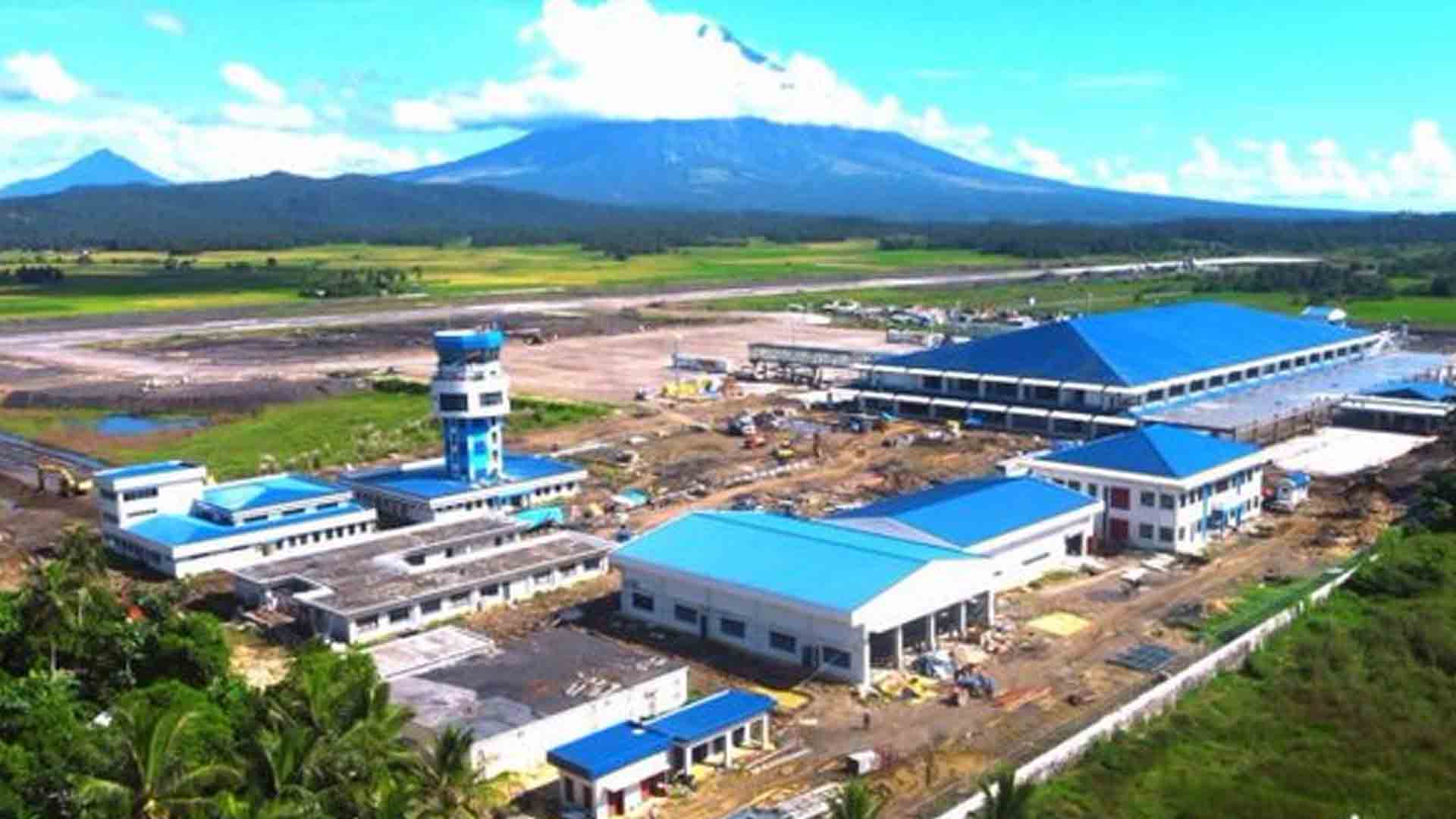The formal opening of the new Bicol International Airport (BIA) after 11 years is another proof of the Duterte administration’s commitment to finish important infrastructure projects under the “Build, Build, Build” program despite the prevailing Covid-19 pandemic.
This, after President Rodrigo Roa Duterte inaugurated the PHP5 billion BIA, touted as “most scenic gateway” with the iconic Mayon Volcano for its backdrop, in Daraga, Albay on Thursday
“Hindi po natin nakakalimutan isama ang Bicol Region sa Golden Age of Infrastructure ng ating bansa. Kahit sa gitna ng pandemya, nananatiling nagsusumikap ang ating pamahalaan para ipagpatuloy ang mga mahahalagang proyekto sa ating komunidad (We have not forgotten to include Bicol Region in the golden age of infrastructure of our country. Even amid the pandemic, our government continues to work hard to continue important projects in our community),” Go said in a news release on Sunday.
“Ito ay patunay ng malasakit at dedikasyon ng Duterte Administration sa paglilingkod sa buong taumbayan. Sisiguraduhin nating walang maiiwan sa ating pagbangon mula sa krisis (This is a testament to the Duterte administration’s concern and dedication in serving the people. We will make sure no one will be left behind in our recovery from this crisis),” he added.
The BIA, considered the first international airport in Luzon south of the National Capital Region, is expected to boost tourism and economic development in the Bicol Region.
The feasibility study of the BIA originally started in 1996 and the notice to proceed was issued in July 2009. It was supposed to have been finished in 2016.
Construction works for the runway, taxiway, apron, and fences were mostly left uncompleted in 2012, and budget was reverted to the national treasury.
It was only when the Duterte administration came in 2016 that the construction of Landside Facilities (Project 2A) began. The construction of the runway extension and the Passenger Terminal Building (Project 2B) began in 2017.

The construction of the airport created 755 jobs with 1,100 more indirect jobs expected to become available once the airport begins commercial operations, according to the Department of Transportation (DOTr).
“Tiyak po ako na ang bagong pasilidad na ito ay makakatulong sa paglago sa Bicol, lalo na sa sektor ng turismo habang dahan-dahan nating binubuksan ang ating ekonomiya (I am sure that this new facility will help growth in Bicol, especially in the tourism sector as we slowly open up our economy),” Go said.
He reassured the public that he will continue to pursue the completion and expansion of infrastructure development initiatives to achieve a more equitable economic development across the country.
Go has been vocal in his support for the country’s infrastructure development, saying the construction of new airports will bring in jobs and economic opportunities outside Metro Manila and will provide a livelihood to Filipinos, especially those who were left jobless due to the pandemic.
As vice chair of the Senate Finance Committee, Go has strongly supported the funding of numerous infrastructure initiatives nationwide.
“Walang humpay ang ating paglilingkod. Pinag-aaralan natin ang lahat ng posibleng paraan na maaaring makapagpabilis sa daloy ng serbisyo at makatulong sa ating mga kababayan. (Our service is unceasing. We are studying all the possible ways that can hasten the flow of service and help our countrymen),” Go said.
Go also attended the opening of the first 18-kilometer section of the Central Luzon Link Expressway project with Duterte in Tarlac City on July 15. The newly opened highway is intended to reduce the usual journey time between Cabanatuan City and Tarlac City from 70 minutes to just 20 minutes once it is fully operational. It will also be toll-free.
On Aug. 24, he attended the inauguration of the Cavite – Laguna Expressway Silang East Interchange section and the Bonifacio Global City-Ortigas Center Link Road Project in Taguig City on Sept. 30.
Go, vice presidential candidate in the 2022 polls, earlier vowed to also continue the good programs such as education, free medical services through Malasakit centers, and infrastructure and other projects that would provide a more convenient life for Filipinos. (PNA)




















